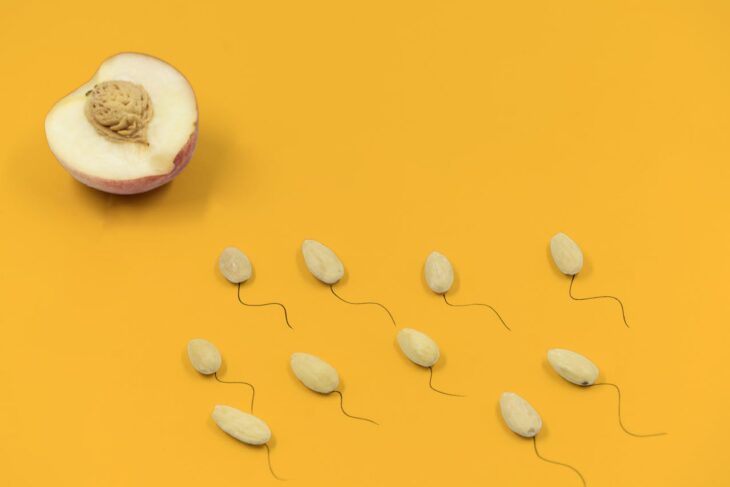
Very often young females focus on periods when it comes to the menstrual cycle. After all, knowing when to expect your period is essential for plenty of occasions. From planning your beach vacation to knowing if you should buy a pregnancy test, period awareness is important.
However, without ovulation an honest-to-goodness period wouldn’t happen. Ovulation rules the menstrual cycle, as in when the bleeding begins each month and when you are most fertile. If you have regular periods and aren’t pregnant, a “late” period most often indicates a disruption to your ovulation schedule. Understanding ovulation is every bit as important as knowing when your period starts. Here are 7 insights into understanding your ovulation cycle.
1. What is Ovulation?
During your reproductive years your ovaries release an egg each month. This is ovulation. The egg awaits fertilization in the fallopian tubes for about 24 hours. If sperm meets egg and fertilization occurs the embryo forms and attaches to the uterine wall where it develops for the next 40 weeks until your baby arrives.
If conception doesn’t occur, your body sheds the unfertilized egg, along with the uterine lining, through your menstrual period and the whole process begins again.
2. There Are Telltale Signs of Ovulation
If you’re trying to conceive you should familiarize yourself with the signs of ovulation. There is only a small window of time in which sperm may fertilize the egg you release. Missing the fertilization window means trying again the next month. Knowing the signs helps you and your partner time intercourse for the most beneficial days. Here are the signs of ovulation:
- Mild cramping on one side of your body
- An increase in libido (sex drive)
- Cervical mucus that’s thicker and slimy
- On occasion, light spotting
- Breast tenderness and signs of PMS begin
Some individuals opt for ovulation predictor at-home tests. These tests measure the presence of luteinizing hormone (LH) in your urine. LH increases when you ovulate.
3. Not Everyone Ovulates Exactly Mid-Cycle
Contrary to what many females believe you don’t necessarily ovulate at the exact midpoint of your cycle. In other words, if you have a 30-day cycle (the first day of your period is 30 days after the first day of your last period) ovulation typically occurs around day 15. But that isn’t always the case for everyone, every month. Everybody is different and each cycle unique.
4. Ovulation Occurs Once Per Cycle
Sometimes females release more than one egg at a time. If fertilization occurs for both, you conceive twins. And sometimes one ovary releases an egg within a few hours of the other ovary releasing an egg. Both of these instances are rare, but they do happen.
What doesn’t happen? You can’t have two completely separate ovulation days in the same cycle. And there are a limited number of days when intercourse results in conception. Since the egg’s viability is a short 24 hours and sperm lives up to five days inside the female body it’s most productive for conception to have intercourse during the week leading up to ovulation. That’s why it’s important you know when you’re ovulating.
5. Ovulation Raises Body Temperature
As soon as your ovary releases an egg your body temperature rises. Some doctors may advise patients trying to pinpoint ovulation to track their basal body temperature. That means each morning you take your temperature and record it on a chart. You’ll see a pattern form after a few months and you may decipher ovulation from this pattern. The basal body temperature method is not necessarily the most reliable. Ovulation cycle body temperature only rises a degree or less and for some people lack of sleep, intense exercise and the occasional virus causes an increase in body temperature.
6. Ovulation Changes Your Cervix
Ovulation causes your body to change in preparation for conception. Your cervical mucus becomes more sperm-friendly and helps usher your partner’s best swimmers to the designated target. And just before ovulation your cervix (think of it as a tunnel) moves slightly up and forward as it softens a bit and opens somewhat in order for sperm to reach your egg more easily.
7. Signs You Are Not Ovulating
When you don’t ovulate (anovulation) or ovulation occurs irregularly (oligo ovulation), you’ll experience difficulty conceiving. If you suspect something’s amiss with your ovulation, please contact your doctor. Here are some signs of ovulatory issues.
- Irregular periods
- Absence of periods without being pregnant
- No difference in body temperature
- Inconsistencies in ovulation prediction kit results
What You Can Do
Ovulation issues may result from imbalanced hormones, underlying conditions such as an autoimmune disease, certain medications, obesity, being underweight, low egg reserve, age and other conditions. Your doctor can confirm any ovulation issues and help treat your infertility. If you’re concerned about your own ovulation please contact LA IVF.










